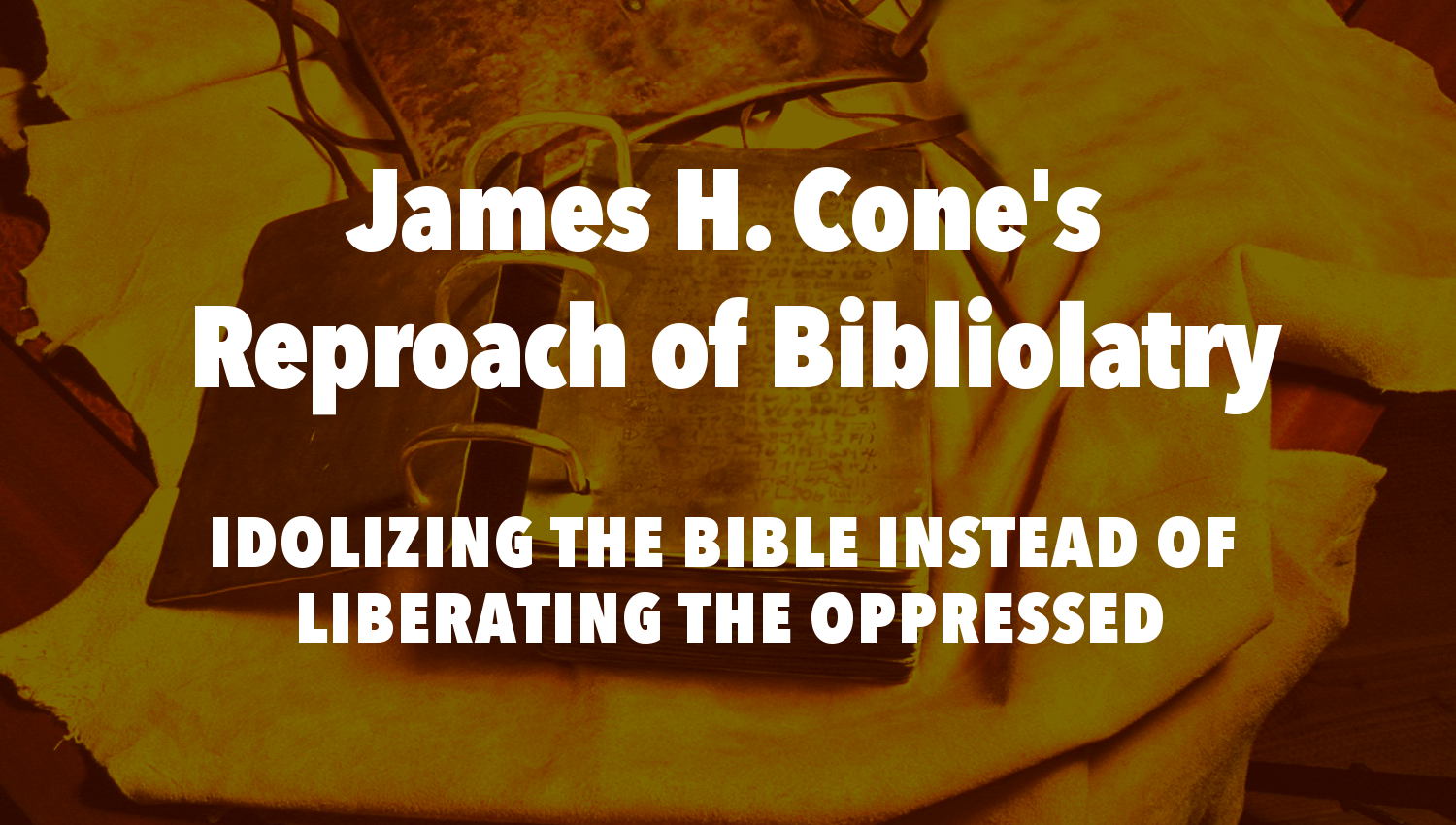 Bibliolatry is prevalent in America (and many other parts of the world), and bibliolatry happens when the bible is turned into an idol. The Heidelberg Catechism defines Idolatry as "having or inventing something in which to put our trust instead of, or in addition to, the only true God who has revealed Himself in His Word" (Q&A #95). So the bible becomes an idol, when there is no distinction between the human words of scripture and the divine Word of God, and that faith is placed in the bible. Bibliolatry is particularly a problem in American Evangelical circles, especially by those who adhere to the error of inerrancy, and is demonstrated by their general confusion how the bible can be an idol.
Bibliolatry is prevalent in America (and many other parts of the world), and bibliolatry happens when the bible is turned into an idol. The Heidelberg Catechism defines Idolatry as "having or inventing something in which to put our trust instead of, or in addition to, the only true God who has revealed Himself in His Word" (Q&A #95). So the bible becomes an idol, when there is no distinction between the human words of scripture and the divine Word of God, and that faith is placed in the bible. Bibliolatry is particularly a problem in American Evangelical circles, especially by those who adhere to the error of inerrancy, and is demonstrated by their general confusion how the bible can be an idol.
James H. Cone in his famous book A Black Theology of Liberation recognizes that bibliolatry is a particularly harmful idol, because it causes a person to emphasis the Bible itself, rather than living out what it reveals. Cone reproaches American fundamentalists explicitly, for emphasizing that the Bible is infallible, inerrant, and contains true propositional statements, etc. and ignore the commands of the bible to liberate the oppressed in the land. Cone says that people in ghettos do not care where the bible is inerrant or not, because they are starving and struggling to live.
James H. Cone writes "The weakness of most 'Christian' approaches to anthropology stems from a preoccupation with (and distortion of) the God-problem, leaving concrete, oppressed human beings unrecognized and degraded. This is evident, for instance, in fundamentalist and orthodox theologies when they view the infallibility of the Bible as the sole ground of religious authority and fail to ask about the relevance of the inerrancy of scripture of the wretched of the earth. If the basic truth of the gospel is that the Bible is the infallible word of God, then it is inevitable that more emphasis will be placed upon 'true' propositions about God than upon God as active in the liberation of the oppressed of the land. Blacks, struggling for survival, are not interested in abstract truth, 'infallible' or otherwise. Truth is concrete." [1]
James H. Cone also reproaches American Barthians as well. American Barthians are not guilty of bibliolatry because they describe the bible as a true human witness to the divine Word of God. The words of the bible are indirectly identified with the Word of God, because the actual self-revelation of God is not the bible, but the living Jesus. Although Barthians evade the problem of bibiolatry, Cone believes that they still present an abstract revelation of God, in a way that doesn't aid anyone who are suffering in rat-infested ghettos.
James H. Cone writes, "The same God-emphasis is evident among American Barthians, who talk about the sovereignty of God in self-revelation, but say nothing about God's self-revelation to blacks who are forced to live in rat-infested ghettos. These theologians are silent on the real human issues." [2]
James H. Cone's criticisms of American theology, including American Barthians is an import word for all (not only Americans), and it comes from one of our own (remember that James H. Cone's Ph.D. was on Karl Barth). Karl Barth's own theology was lived out for the liberation of the oppressed, as exemplified in his contribution to the Barmen Declaration. James H. Cone challenges us to remember that the Gospel of Jesus Christ is for the liberation of the oppressed.
Sources:
1. James H. Cone, A Black Theology of Liberation, Orbis Press, Maryknoll NY: 2007. 88.
2. Ibid.
3. Header Image Background: Wikipedia. By David A. Baird/Historical Arts and Castings, CC BY-SA 3.0, Link



October 23rd, 2017 - 12:39
A small note.The two largest rescue missions in downtown Los Angeles (Union Rescue Mission; the Fred Jordan Mission), serving the poor and disenfranchised are both Fundamentalist/conservatives in theological outlook. (I don’t share in such belief systems). While I am sure that there are some mainstream Protestants that are working in inner city, you will be hard pressed to find many progressives doing much to help all those in need. What does that say about their ‘enlightened’ view of the bible? Maybe the other side has to reconsider how its commitment to ‘social action’ solutions is the really all that compassionate, especially when it is not backed up with practical behavior.
October 23rd, 2017 - 13:48
James Cone provides criticism of more left or liberalism leaning groups within this chapter. JHC is targeting people who do not participate in liberation of the oppressed. I’m aware of fundamentalists, barthian, and progressives (as you say) who do engage in liberation theology, however these JHC quotes are targeted against those who idolize the Bible without doing what it says.
May 2nd, 2023 - 19:21
Didn’t Jesus’ half brother James say that faith without works is dead? So, what’s the problem here? Of course you have to do what It says, not just read a book, even if that book is the Bible. Duh. Oh, and it works the same for both sides of the asile (black, white, rich, poor, male, female, etc.) Come on now, get real. Like Spike Lee says, “Do the right thing.”